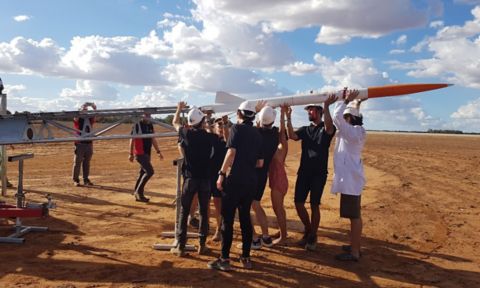Five ways junk food changes your brain
We know junk is bad for us, but we eat it anyway. RMIT neuroscientist Dr Amy Reichelt explains why junk foods are refined to hit you right in the sweet spot – your brain.
Device simplifies study of blood cells, opens new organ-on-chip possibilities.
A simple innovation the size of a grain of sand means we can now analyse cells and tiny particles as if they were inside the human body.
Graduate research grants for smarter cars of the future
Three RMIT research projects have been awarded grants totalling over $780,000 to modernise the Australian automotive industry.
Student rocket team wins at national competition
RMIT's student-led rocket team have been notching up some big achievements, now they're officially among Australia's best.







